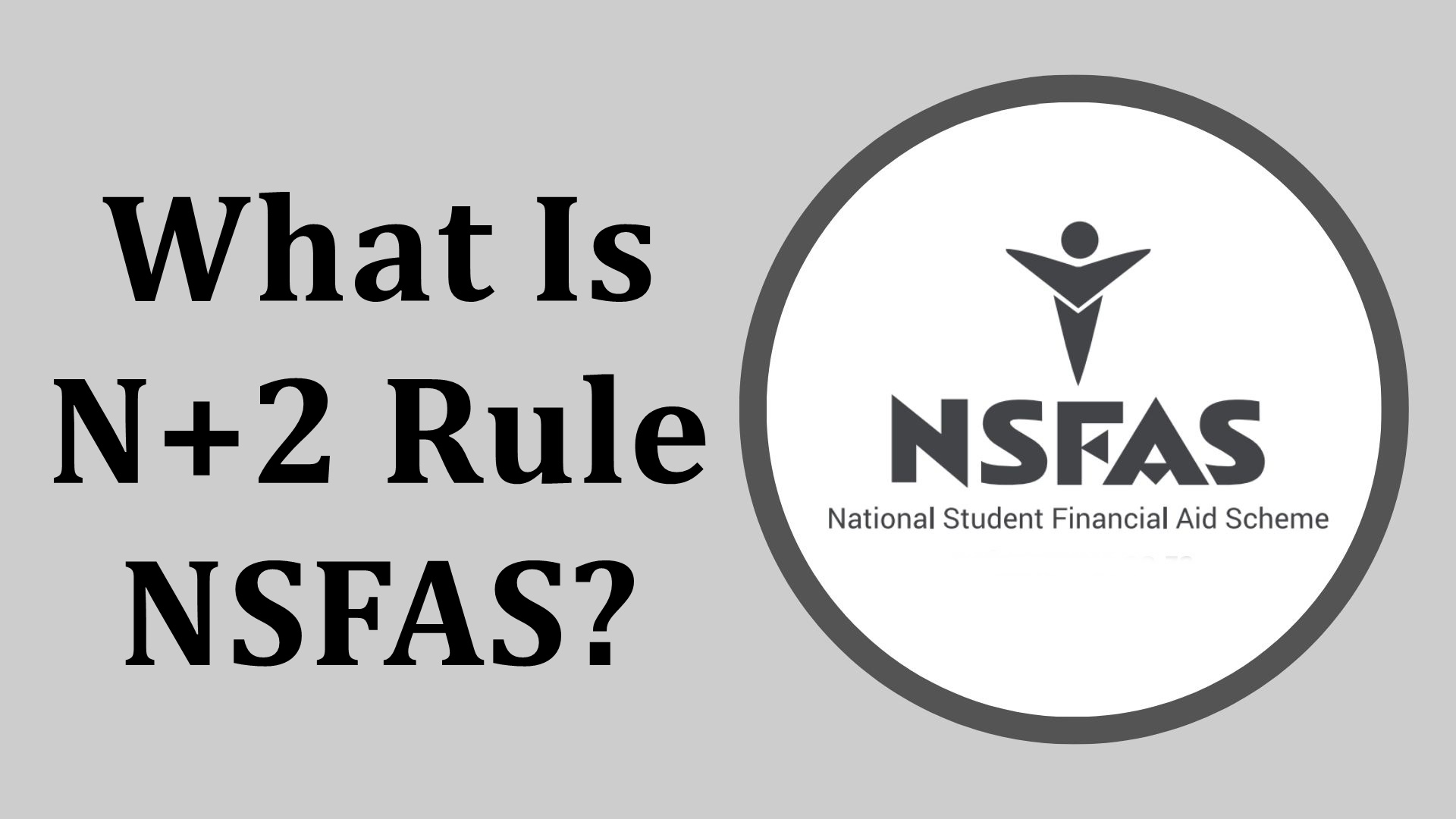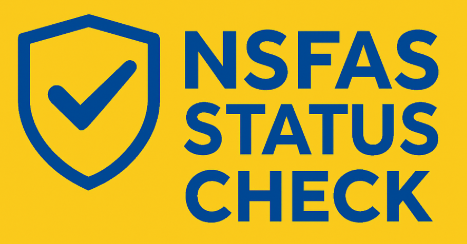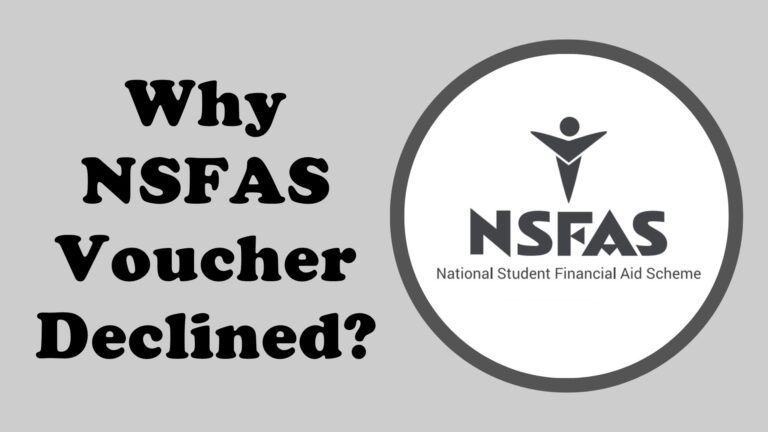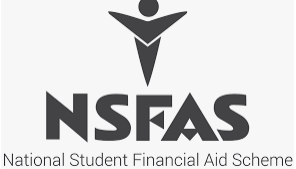What Is N+2 Rule NSFAS?
Students can benefit from the N+2 rule, which allows extra time to complete their degree. In this system, N represents the normal duration of the program, and +2 provides an additional two years. If a student is unable to finish within the standard period, these extra years are also supported through provincially funded assistance.
What the N+2 Rule Means
Understanding “N” and “+2”
The “N” in N+2 stands for the minimum number of years normally required to complete a specific qualification (for example a Bachelor’s degree, diploma, or certificate).
The “+2” means the extra two years allowed by NSFAS beyond the minimum (N) for a funded student to still qualify.
So if a qualification is normally 3 years (N = 3), then under N+2 you would have up to 5 years to complete it while receiving NSFAS funding.

Why the Rule Exists
NSFAS has limited funding and must manage how long students can be funded. The rule ensures students do not remain indefinitely funded.
According to the government, it “ceases to fund a student … beyond the N+2 period”.
Who the Rule Applies To
This rule applies to students funded by NSFAS at public universities and public TVET colleges in South Africa.
Some documents refer to an N+1 rule for students registered after a certain year, and the N+2 rule for earlier cohorts.
After learning about the N+2 rule, students can check CPUT accredited private accommodation for NSFAS approved housing options.
How to Calculate Your N+2 Limit
Step‑by‑Step
Identify the qualification you’re enrolled in (e.g. 3‑year Bachelor of Arts, 4‑year Bachelor of Science, 1‑year Higher Certificate, etc.).
Determine N = the minimum years normally required for that qualification.
Add +2 to N to find the maximum years you have while still eligible for funding.
Example: If N = 4 (for a 4‑year degree), then N+2 = 6 years maximum.
Check how many years you’ve been registered at any public higher‑education institution (note: doesn’t necessarily mean you were funded each year). NSFAS counts registration time, not just funding years.
If your registration years > N+2, you risk losing NSFAS funding or being ineligible for further funding under that rule.
Implications of Exceeding the N+2 Rule
What happens if you exceed the limit?
If you have reached N+2 (or N+3 in the case of students with disabilities) then you are not eligible to appeal for funding continuation under that rule.
Students who have reached N+2 cannot appeal for further funding.
You might see your student status labelled “unsuccessful” due to “exceeded N+2 rule”. That means NSFAS funding will stop.
Why this is important for you
If you’re relying on NSFAS for tuition fees and allowances, losing funding means you’ll have to find alternate means or self‑fund the rest of your studies.
Being proactive about tracking your registration years, progress, and remaining time becomes critical.
It encourages students to complete their qualifications within the allowed time or plan for contingencies.
Special Cases & Exceptions
Students with disabilities
For students living with a disability, there is an allowance of +3 years in some cases instead of +2.
This means if N = 4 for a qualification, a student with disability could have up to 7 years (N+3) in certain circumstances.
Appeals for Exceeding N+2
Even if you exceed N+2, you may appeal in certain exceptional circumstances. Valid reasons include:
Severe illness for 2+ months during the academic term or exams
Death in the immediate family
Violent crime or abuse
Giving birth during the academic term and documented by the institution
However, students are generally not permitted to appeal solely for exceeding N+2.
Transfer of Institutions / Breaks in Study
Registration years count even if you changed institutions or had breaks.
Students who de‑registered in a semester may still have the year counted toward the N+2 limit.
Keep records of any gaps or deregistration to verify your registration timeline.
How to Stay Within the N+2 Rule and Maximise Funding
Know exactly how many years your qualification is meant to take (N)
Map out your expected finish date and mark the N+2 cut‑off year
Track your registration years each academic year Avoid repeating years or modules that delay your progress
Document delays caused by health or family issues
Check your NSFAS status regularly
Meet academic progression requirements
Consult your institution’s financial aid office if needed
FAQ’s
If I transfer institutions does N+2 rule still apply?
Yes. Registration years at any public higher education institution count toward N+2.
Can I appeal if I have exceeded the N+2 rule?
Generally, once you’ve reached N+2 you are not eligible for standard appeals. Only in exceptional circumstances may an appeal be considered.
Does the N+2 rule apply to TVET colleges as well as universities?
Yes, it applies to students at both public universities and TVET colleges receiving NSFAS funding.
If I fail a module and take longer, does that count against the N+2 rule?
Yes. Failed modules that extend your registration years mean you approach your N+2 limit sooner.
What happens if I need an extra year because of illness or disability?
If you have documentation showing incapacity or are a student with disability, you may qualify for extended time (N+3 in disability cases) or appeal, but this is not guaranteed.
Many students are unable to complete their studies on time because of health issues, family challenges, or disabilities. To support such students, NSFAS introduced the N+2 rule, which allows financial aid for an additional two years to help them finish their education. You can find complete details about the NSFAS N+2 rule and learn how to appeal for it at https://nsfasstatus.co.za/



